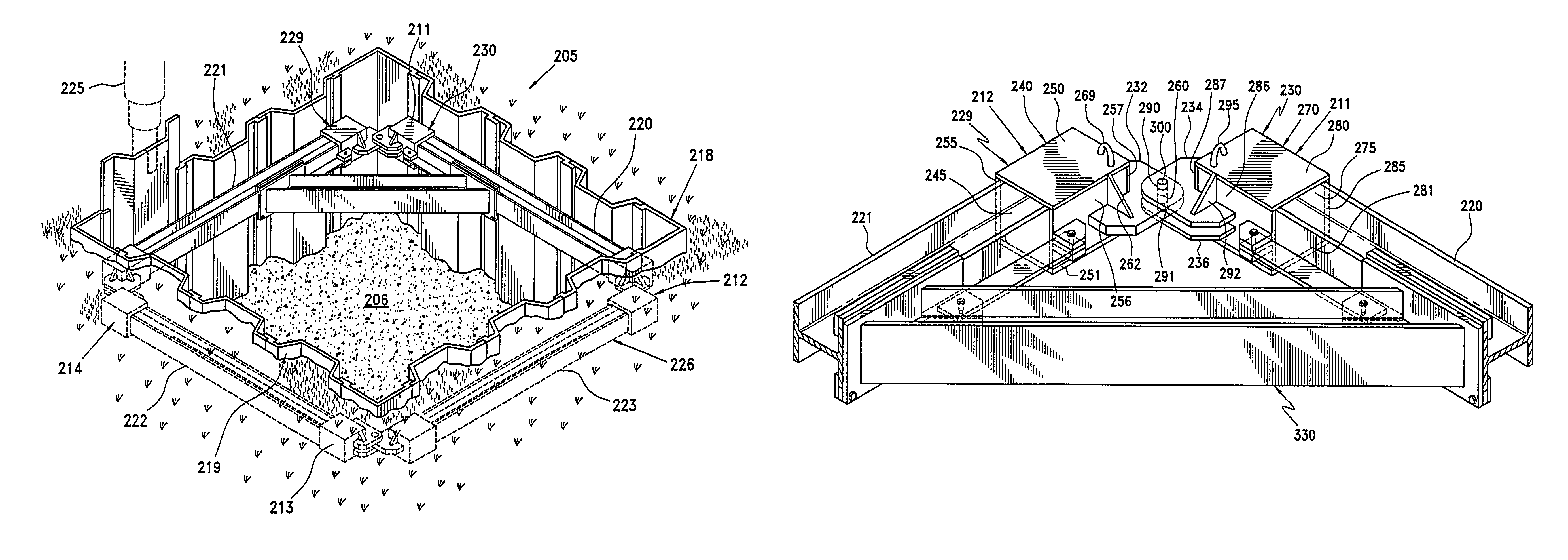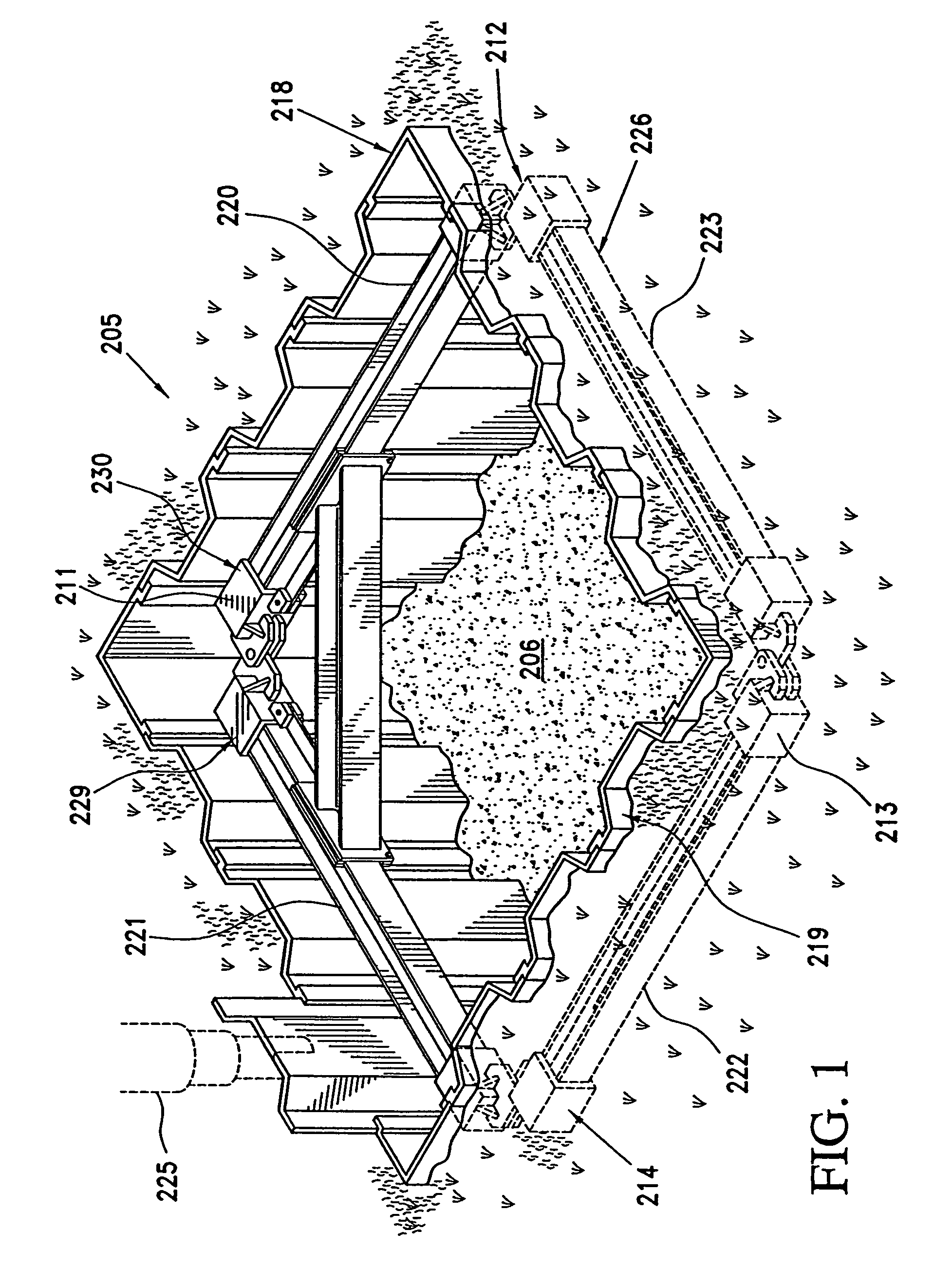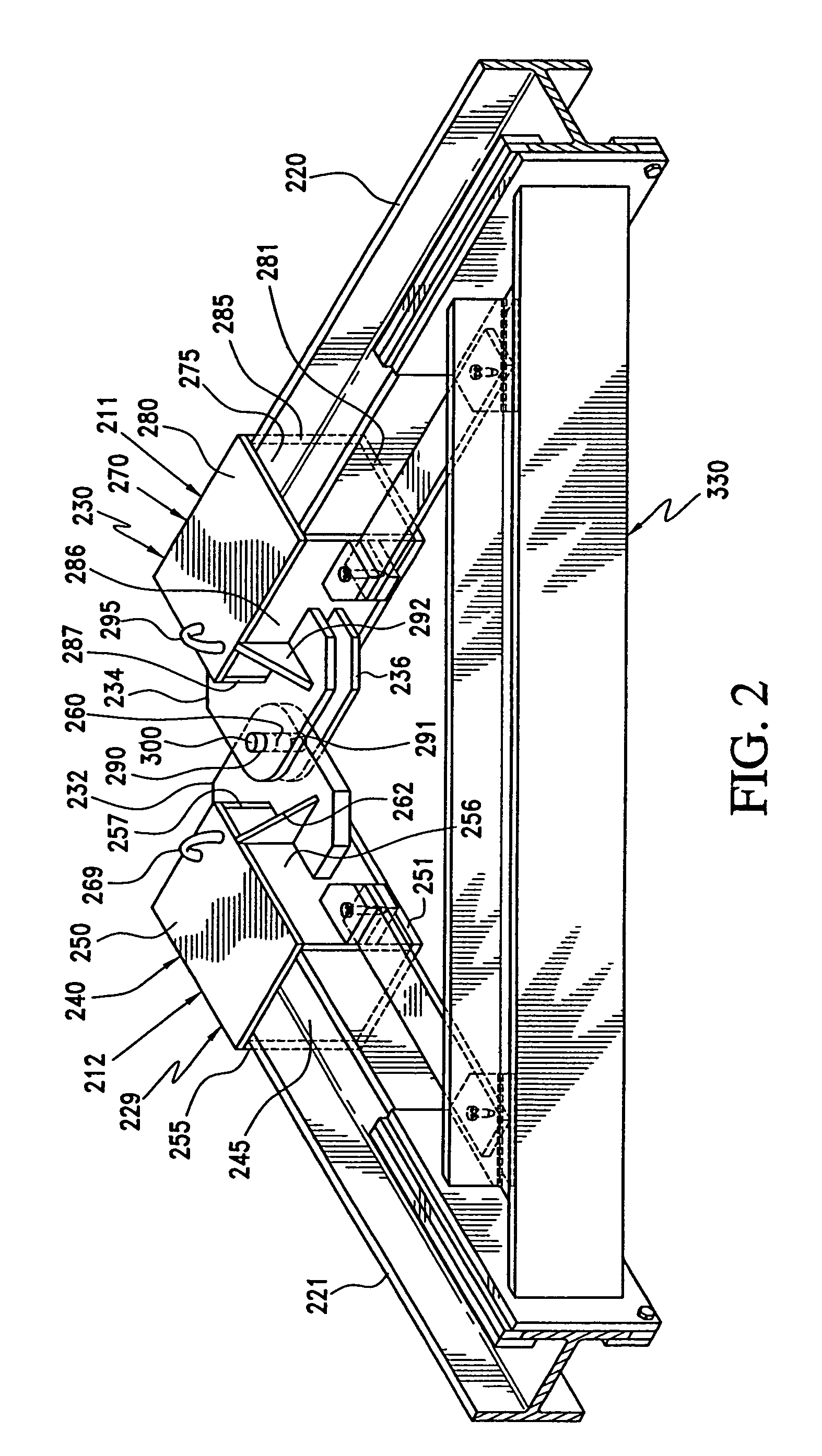Corner connection for temporary shoring
a corner connection and temporary shoring technology, applied in the direction of shaft equipment, shaft lining, artificial islands, etc., can solve the problems of insufficient maximum permissible load and always a factor in the cost of using heavier materials, and achieve the effect of greater loads
- Summary
- Abstract
- Description
- Claims
- Application Information
AI Technical Summary
Benefits of technology
Problems solved by technology
Method used
Image
Examples
Embodiment Construction
[0026]Referring now to FIG. 1 there is shown a typical excavation site 205 with an excavation hole 206 incorporating corner connections 211–214 for temporary shoring 218 according to a preferred embodiment of the invention. The temporary shoring 218 actually comprises three major elements: interlocking sheet piling 219, reinforcing I-beams or shoring beams 220–223 and corner connections 211–214, each connection including two connectors for the I-beams 220–223. Although shown here as I-beams, beams of different shapes could be used so long as the connector and beam have mating shapes. For example, round, L-shaped and U-shaped beams could be used, as could a beam of almost any cross section. Interlocking sheet piling 219 is shown placed along the walls of the excavation hole 206. Such interlocking sheet piling 219, which in the embodiment shown is formed by interconnecting two types of side wall panels and corner panels (not separately labeled), is usually driven into the ground prior...
PUM
 Login to View More
Login to View More Abstract
Description
Claims
Application Information
 Login to View More
Login to View More - R&D
- Intellectual Property
- Life Sciences
- Materials
- Tech Scout
- Unparalleled Data Quality
- Higher Quality Content
- 60% Fewer Hallucinations
Browse by: Latest US Patents, China's latest patents, Technical Efficacy Thesaurus, Application Domain, Technology Topic, Popular Technical Reports.
© 2025 PatSnap. All rights reserved.Legal|Privacy policy|Modern Slavery Act Transparency Statement|Sitemap|About US| Contact US: help@patsnap.com



